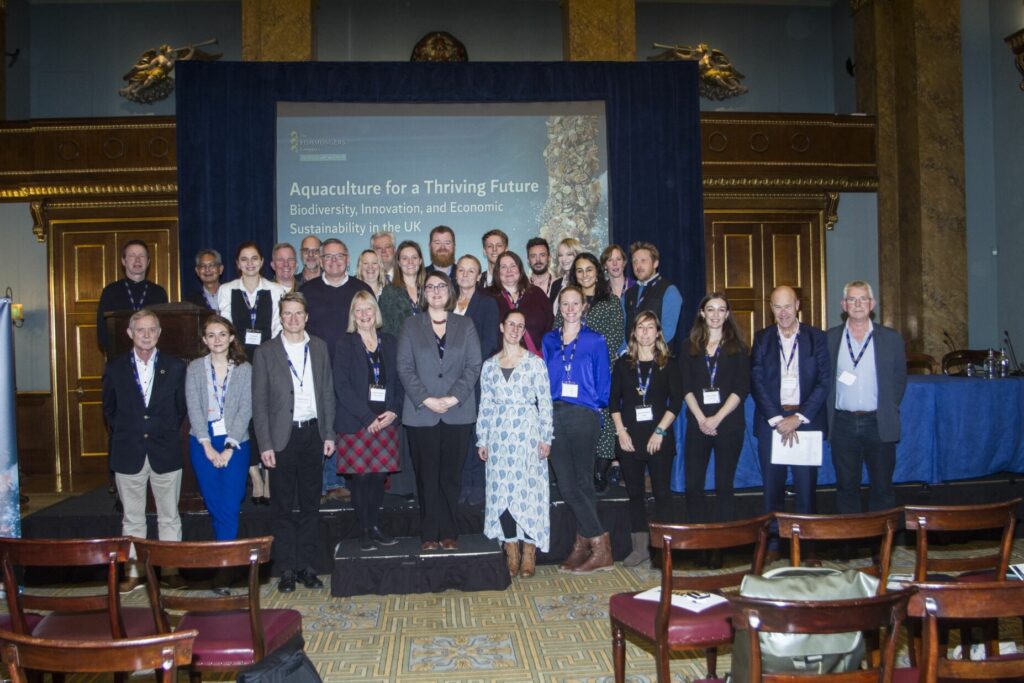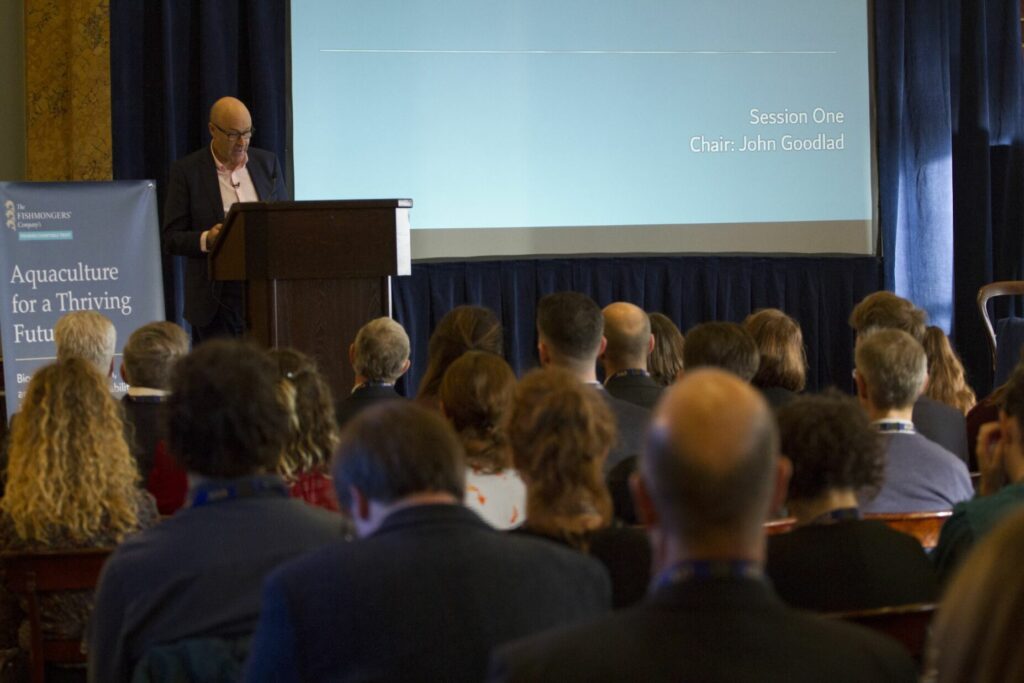

Over 170 delegates gathered in Fishmongers’ Hall on November 30th to hear from industry, scientists, policy-makers and NGOs, who examined the state of low-trophic aquaculture in the UK and set out the steps required to support a thriving, sustainable industry.

Speakers outlined the need for further funding for research and development, the importance of advocacy to drive policy changes and a an appropriate regulatory environment, as well as the need for cross-sector collaboration to foster innovation, reduce risk to investors and increase access to finance.
You can read the conference proceedings here and view all of the speakers and presentations here.
The conference was opened by special guest speaker Stefán Jón Hafstein, Chair of the Aquatic Food Coalition and Special Envoy for Ocean Affairs, Iceland, who gave an international perspective on aquatic blue food, highlighting that whilst aquaculture remains undervalued and underrepresented at a policy level the significant growth of the sector provides positive signals, with space to achieve much more.
Speakers from the Crown Estate and Crown Estate Scotland examined the UK vision for nature-positive aquaculture, whilst representatives from the MMO, Green Finance Institute and FinanceEarth explored the current state and future potential for policy and investment in the UK.

Focus then turned to the environmental gains that low-trophic aquaculture can deliver, as speakers from WWF, the Universities of Plymouth, Exeter and Essex demonstrated the ecological benefits of mussel, seaweed and oyster farming. Second guest speaker Rod Fujita, Oceans Director at the Environmental Defence Fund, then explored the benefits of seaweed for climate change mitigation, outlining the rapid rate at which it absorbs carbon from the atmosphere.
The fourth session examined market innovation as speakers discussed the innovative use of low-trophic products in food, ranging from mussel burgers to clam nuggets, designed to broaden consumption of farmed shellfish. Opportunities to monetise seaweed growing through payment for ecosystem services were also examined.
The final session interrogated opportunities for the future of UK low-trophic aquaculture, exploring collaborative models that can deliver benefits for shellfish farmers, fishermen and the environment, as well as tackling some of the structural barriers currently restricting growth in this sector. This was followed by a lively panel discussion dissecting the key issues facing the sector and identifying the core opportunities for growth and development of an aquaculture approach that benefits both people and the aquatic environment.